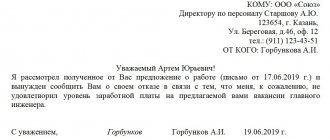When entering into civil relations with various persons - both individuals and legal entities, a citizen or organization expects to solve their problems profitably, but instead sometimes receives material damage. The situation is extremely unpleasant and is often accompanied by moral suffering. How to legally demand compensation for damages in order to get money - and, preferably, without lengthy legal red tape?
The culprit is not always eager to fairly compensate for the damage that was caused to him. Problems also arise with determining the amount to be paid. To avoid mistakes when collecting damages and to protect your rights, contact an experienced lawyer.
What is moral damages
Article 151 of the Civil Code of the Russian Federation and the Plenum of the Supreme Court of the Russian Federation, in their Resolution No. 10 of December 20, 1994, established that moral damage is moral or physical suffering caused by actions (inaction):
- that infringe on the intangible benefits listed in Article 150 of the Civil Code of the Russian Federation (honor, dignity, life, health, business reputation, etc.);
- that violate personal non-property human rights (rights provided for by laws on the protection of intellectual property);
- that violate the property rights of a citizen (including those arising from the contract).
The said Resolution provides an explanation of what should be understood by the mentioned suffering. Thus, moral ones are expressed in negative mental reactions of a person, such as fear, humiliation, helplessness and any other uncomfortable state caused by:
- loss of relatives;
- inability to continue an active social life;
- job loss;
- disclosure of family and medical secrets;
- dissemination of information that does not correspond to reality;
- temporary restriction or deprivation of any rights, etc.
Physical is any painful or unpleasant sensation: pain, itching, burning, nausea, dizziness, suffocation, etc.
Monetary compensation for moral damage is carried out only in relation to a citizen. This is due to the fact that moral harm is suffering, i.e. categories that apply only to a being with a psyche. A legal entity has the right to demand recovery of reputational damage, but it must be based on the rules on causing losses, not moral damage.
Losses
In accordance with Article 15 of the Civil Code, a person whose right has been violated may demand full compensation for the losses caused to him.
In this case, losses are understood as expenses that a person whose right has been violated has made or will have to make to restore the violated right, loss or damage to his property (real damage), as well as lost income that this person would have received under normal conditions of civil circulation, if his right had not been violated (lost profits). Compensable real damage caused by the developer to the taxpayer includes, in particular, the amount of actual costs for renting residential premises for the period of violation of the deadline for transfer of the shared construction project.
Compensation for such actual damage based on a court decision does not constitute an economic benefit for the taxpayer and, accordingly, is not his income.
Moral damage and its compensation
There is no formula for calculating moral damage; the seriousness of moral suffering is assessed individually. Judicial practice and their own subjective assessment of the circumstances are the only things judges rely on when determining the amount of compensation for moral damage. In Art. 151 and 1101 of the Civil Code of the Russian Federation, a number of criteria are legally established that must be taken into account by the court when determining the amount of compensation:
- the nature and degree of moral or physical suffering;
- the degree of a person’s guilt, when guilt is the basis for liability for causing harm;
- actual circumstances in which moral damage was caused and other circumstances worthy of attention;
- individual characteristics of the victim (for example, for a woman - the state of pregnancy);
- requirements of reasonableness and fairness. For example, the Ruling of the St. Petersburg City Court dated May 3, 2012 in case No. 33-5359/2012 confirms that when determining the amount of compensation, the court must take into account the property status of the debtor. Thus, the plaintiffs stated the amount of compensation, which was recognized by the court as excessive, since the execution of the court decision is impossible due to the financial and economic insolvency of the debtor.
In the Russian Federation, moral damage by a court decision can be compensated only in one form - monetary. This does not mean that the causer of damage does not have the right to voluntarily take actions aimed at smoothing out the suffering suffered by the victim (caring for the victim, providing other assistance, transferring any property).
Current legislation provides grounds for collecting compensation that constitute a violation of:
- secrets of the will (part 2 of article 1123 of the Civil Code of the Russian Federation);
- non-property rights of the author (Part 1 of Article 1251 of the Civil Code of the Russian Federation);
- consumer rights by the manufacturer, seller (Article 15 of the Law of the Russian Federation dated 02/07/1992 No. 2300-1);
- travel agent terms of the agreement on the sale of a tourist product (paragraph 6, article 6 of the Federal Law of November 24, 1996 No. 132-FZ);
- human rights in connection with discrimination in the sphere of labor (part 4 of article 3 of the Labor Code of the Russian Federation);
- employer of employee rights (Article 237 of the Labor Code of the Russian Federation), etc.
These are examples of moral damage, cases when the court seeks monetary compensation for violation of non-property rights. A citizen is not limited by these limits and has the right to seek protection of his rights in other situations. But to make a positive decision, it is necessary to substantiate moral damage in the statement of claim based on the facts and rules of law. For this reason, in practice, moral damages are recovered when it is expressly provided for by law or when physical harm is caused.
However, the legislator has established that for the right to compensation to arise, the following four conditions must be simultaneously present:
- Actually physical or moral suffering. The burden of proof lies with the victim.
- An unlawful action (inaction) that violates a citizen’s non-property rights or encroaches on other intangible benefits belonging to him.
- Causal connection between unlawful action (inaction) and moral damage. The causal connection must be direct. So, for example, if damage is caused to a patient as a result of an operation, then the actions of the doctor who directly performed the operation will be decisive, and not the persons who appointed him to this position or who certify medical workers.
- The guilt of the harm-doer, which manifests itself in the form of intent (direct or indirect) and negligence (carelessness or frivolity). The legislation establishes the rule of presumption of guilt of the harm doer.
These conditions are the basis for compensation for moral damage. In exceptional cases, liability may arise without fault. They are listed in Art. 1100 of the Civil Code of the Russian Federation, this is the infliction of harm to health or life by a source of increased danger (for example, a car), as a result of unlawful conviction, detention, etc., moral suffering resulted from the dissemination of information discrediting honor, dignity, reputation.
Examples from judicial practice will help determine what moral damages can be claimed. The more serious the violation, the greater the physical suffering, the greater the compensation. Its size varies from one to several tens and hundreds of thousands of rubles. The Supreme Court in 2021 indicated that symbolic compensation is not allowed and prohibited the courts of first instance and higher courts from arbitrarily reducing the amount of payments.
ConsultantPlus experts examined how a consumer can seek compensation for moral damages. Use these instructions for free.
Compensation payments for road accidents
An accident entails not only financial waste. Most accidents on the road cause crippled lives and life tragedies. Therefore, damage caused by an accident must be compensated for both material and moral reasons.
Proving material damage in court is quite simple. You can successfully determine the amount of the non-property component with the help of legal advice. In order for the judge to make an adequate decision in favor of the plaintiff, it is necessary to analyze the degree of guilt of all participants in the incident and assess the severity of the moral suffering of the victim.
How to file a claim for compensation for harm
Claims for compensation for non-material damage are very rare, and often a claim for compensation for moral damage forms a structural part of a general claim. The only exceptions are claims in cases of protection of honor, dignity and business reputation, in which compensation for moral damage constitutes a significant proportion of the total amount of the claim. Such applications are considered by courts of general jurisdiction, and the statute of limitations begins to run from the moment the defendant’s guilt was established and continues: for material damage - three years, moral - without a statute of limitations.
The contents of the statement of claim are divided into the following parts:
- A cap. The name and details of the court, full name, address, contacts of the plaintiff and defendant, the price of the claim and the amount of the state duty are indicated. Then comes the title of the claim: “Claim for Damages.”
- Main part. It must state the essence of the offense that led to the violation of rights and freedoms. It is also worth describing in more detail what harm was caused, in what way, how it was expressed, and whether witnesses were present. It is important to provide the facts - they form the evidence base for the claims.
- Motivational part. At this point, you should provide more evidence that confirms your case (witness testimony, letters, video and photographic materials, media publications, etc.). In addition to the circumstances of what happened, it is permissible to give examples from judicial practice and current legislation that will strengthen your position. In practice, the question arises: how to describe moral damage in a statement of claim, the answer to which is as sincere as possible; in this case, it is permissible not to use business style and describe the feelings of the victim in simple and understandable words.
- Resolution part. Here is a request to satisfy the plaintiff’s demands, which must be numbered.
- Applications. At the end, you need to record a list of documents that you attach to the claim. This list is legally established in Article 132 of the Code of Civil Procedure of the Russian Federation:
- copies of documents confirming the filing of the statement of claim and its attachments for all participants in the case (if the participants already have documents from the attachments, they do not need to be sent);
- receipt of payment of state duty;
- a document confirming the authority of the plaintiff (or powers of attorney of the plaintiff’s representatives);
- documents that serve as proof of your case (for example, medical and expert reports, prescriptions, receipts, etc.);
- confirmation that there was an attempt to resolve the conflict out of court;
- calculation of the amount of the claim and its justification.
State duty in such cases should be collected on the basis of paragraphs. 3 p. 1 art. 333.19 of the Tax Code of the Russian Federation in the amount of 300 rubles for individuals and 6,000 rubles for legal entities.
To apply for the recovery of moral damages, the following rules regarding the statute of limitations apply:
- if the claim arises from a violation of intangible rights, the statute of limitations does not apply to it;
- if the claim relates to property rights, the statute of limitations established for their protection applies.
Court expenses
According to paragraph 61 of Article 217 of the Tax Code, income in the form of legal expenses reimbursed to the taxpayer on the basis of a court decision, provided for by civil procedural, arbitration procedural legislation, and legislation on administrative proceedings, incurred by the taxpayer when considering a case in court, is not subject to personal income tax.
Thus, income in the form of compensation to the taxpayer for legal expenses made on the basis of a court decision is not subject to personal income tax, subject to the conditions established by paragraph 61 of Article 217 of the Tax Code.
In case of violation of consumer rights
Poor quality goods or violation of consumer service rules significantly affect a person’s quality of life. At the same time, the buyer of any category of goods has the right to demand moral compensation.
Significant shortcomings and hidden defects of the purchased product can cause harm to the life, health and property of the buyer. If this happens, the consumer has the right to file a claim to recover moral damages from the defendant. The defendant in this situation will be the seller of goods of inadequate quality, the manufacturer or direct distributor.
Results
Moral harm is expressed in physical and moral suffering that becomes for the injured citizen as a result of unlawful actions or inaction of any person.
The legislation of the Russian Federation provides for the payment of monetary compensation for damage of this kind. There are no specific rules for calculating its size, and the assessment is made based on qualitative indicators. As a rule, such an assessment is carried out by the court, which must take into account both all the circumstances accompanying the situation of causing moral harm, as well as other aspects important for its assessment. You can find more complete information on the topic in ConsultantPlus. Free trial access to the system for 2 days.






